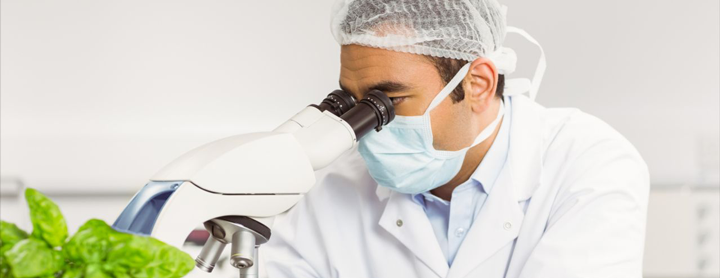News



Is Food Technology Going to Save Food? Probably Not.
Re/Code | Posted: 11/09/2015
View original article here.
[ssba]
Press Release



Is Food Technology Going to Save Food? Probably Not.
Posted: 11/09/2015
“We are going to have nine billion mouths to feed in the next few years, and what are we going to do about it?” is the kind of question that Silicon Valley loves to answer; it presents both a vexing social challenge and a lucrative business opportunity. This question, perhaps more than anything else, dominated the second annual reThink Food conference this weekend. The event is put on by the Culinary Institute of America and the MIT Media Lab, and was held at the Institute’s swanky Napa campus, which is literally a castle. There was a lot of hand wringing about robots overtaking the kitchen, or murmurs among attendees about climate change, but the most interesting conversations were about the ways venture capitalists — overflowing with capital from hedge funds and other institutional investors — are poised to change the way the industry operates. Food is tricky, however. Lab-created food has to be closely examined by regulators. The profit margins across the industry are much tighter than software. A harsh winter or summer can wreck your entire model. Or as investor Will Rosenzweig put it, “If you have a bad Uber, you can score the Uber low. You won’t get that driver again, but you’ll use Uber again. “You don’t get much of a second chance in food.” Rob Hurlbut, who leads sustainable agriculture investments at Equilibrium Capital, is the portrait of optimism for the potential of tech to make a difference in food. On a panel moderated by the New York Times’ Stephanie Strom, with Rosenzweig and frozen food maker Luvo CEO Christine Day, Hurlbut said that hedge funds and other investors are asking to invest in food and agriculture technology because they think these assets are worth holding onto in the long run. “We’ve proceeded to talk with pensions and other investors who want to put their returns in real assets,” Hurlbut said. “We’ve found a segment of investors who are excited to own real assets, own real farms — a plan that was more in line with their expectations.” I didn’t see any farmers at the conference who were around to give their opinions about the prospect of venture capitalists, but Rosenzweig, who is a managing partner at Physic Ventures, head of the Culinary Institute’s Food Business School and a professor at UC Berkeley’s Haas School of Business, offered a more measured perspective. Using venture capital-backed food ventures like Blue Apron or Sprig as an example, he observed that “they’re much more complicated than logistics companies,” like Uber or Postmates. “The whole supply chain that supports that is not mechanical, it’s still grounded in natural systems that we as human beings are subordinate to,” Rosenzweig argued. “Venture capital has really high expectations for the speed of return and the amount of return, and in the last few years venture capital has changed as hedge fund and mutual fund money has come in.” “[Vegan mayonnaise maker] Hampton Creek — it’s valued like a biotech company with a consumer product in a low-margin, middle of the store spread product,” Rosenzweig said. “How does a company like that grow into the expectations that investors put on them?” Recalling what happened last month with Theranos — the multi billion-dollar biotech startup whose finger-prick blood-testing technology was called into question by the Wall Street Journal — Rosenzweig added, “Not only is the food market changing, but the capital market is moving … we have an FDA that’s ill-suited to deal with the level and speed of change that’s coming.” What Rosenzweig described ominously, others sounded so excited about that they were practically falling out of their chairs talking about it. In a different panel that came later in the day, the Campbell Fresh President Jeff Dunn, who leads the soup company’s Whole Foods-like division, repeated the “nine billion mouths to feed” line several times, talking about the need to undo decades of “unintended consequences.” Fellow panelist Sara Burnett, a higher-up at Panera, nodded along vigorously. When Dunn criticized government policies that put millions in military spending at the expense of feeding people (“Maybe it’s one less aircraft carrier, and putting more gardens in schools”), everyone started clapping loudly. Though the line resonated with the entire room, it highlighted the self righteous atmosphere of the whole event. The night before, one chef for a large catering service told me that in spite of what we’d hear over the weekend, technology wasn’t going to really be the big difference maker in the food industry. He predicted (correctly) that agriculture giant Monsanto’s proprietary seed technology and other issues that farmers and industry insiders care about probably weren’t going to come up all that much. “The tech people want to make money, that’s fine. It’s not going to fix everything.”[ssba]



